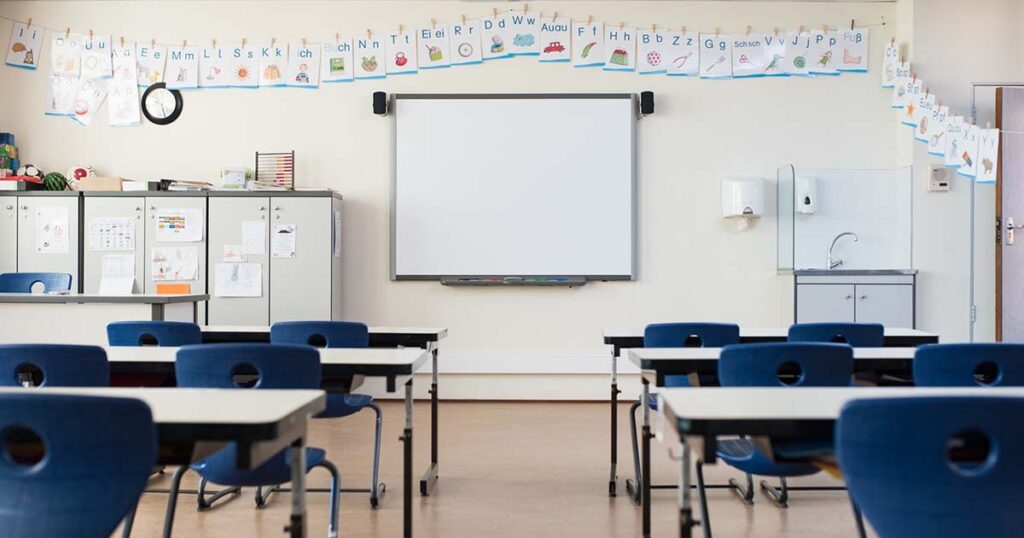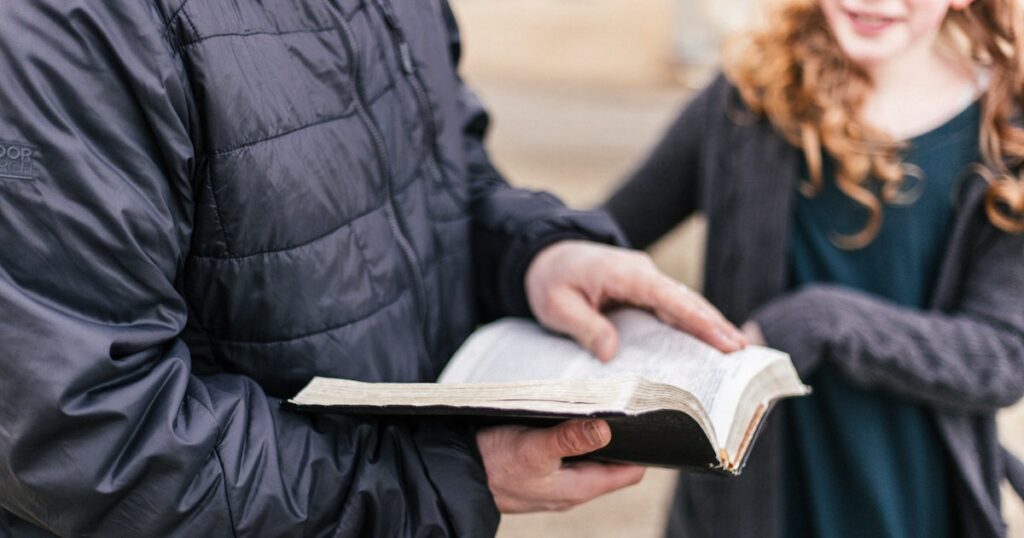Two years of lockdown and quarantine disruptions to most American children’s learning led to historic declines in student achievement in 2022. Test scores are easier to measure than other, possibly more important, ways lockdowns harmed children. Teachers are reporting that traits such as emotional resilience, relationship skills and self-control also have taken a serious hit.
Children are more anxious, less secure and more disorganized and unruly post-lockdown, according to teachers and mental health surveys. So teachers, counselors, principals and other school leaders are urgently seeking ways to help. One popular strategy, especially in secular schooling, is called “social and emotional learning,” or SEL. (It’s also sometimes called “socioemotional learning.”)
The rise of SEL
SEL is billed as a way to help children develop important life skills such as relating to others, cooperating, managing their emotions and communicating. According to the Collaborative for Academic, Social and Emotional Learning (CASEL), a leading SEL advocacy organization, so far 27 states require public schools to teach SEL objectives in K–12, and all 50 states require this of public preschool programs.
Nobody seriously objects to the idea of teaching children patience and kindness. But many social-emotional learning programs are not effective, and many are openly anti-Christian. Many school staff are not aware of this when they welcome such programs into their schools.
Some SEL programs openly promote books that present an anti-Christian account of race. For example, Changemakers is a top SEL curriculum pick from CASEL for pre-K to fifth-grade kids. This curriculum’s book recommendations for teachers include “How to Be an Anti-Racist” by Ibram Kendi and “White Fragility” by Robin DiAngelo. Both of these books express moral condemnation of people based solely upon the color of their skin — that is, they encourage their readers to view other human beings in unbiblical and racist ways.
Changemakers doesn’t recommend such books alongside others with competing viewpoints as a way to understand what many people think right now. It recommends only materials with this perspective for use by teachers and in schools — a perspective which contradicts Christianity’s views of sin and righteousness, and its rejection of racism of every variety — by people of any ethnicity against people of any other ethnicity.
Other SEL programs encourage popular sexual sins and confusion about the two sexes God has made. The LGBT advocacy organization Human Rights Campaign tells teachers that social and emotional learning lessons “are a wonderful time to include children’s experiences with LGBTQ issues.” CASEL says throughout its many educational materials that SEL is a useful tool for encouraging children to explore their “identities,” including their “gender.” Such materials are simply inappropriate for any Christian institution.
Virtue without religion?
To faithful Christians, the problems are obvious with schools endorsing racism and homosexual acts and rejecting God’s designation of each person’s sex at conception. That doesn’t mean, however, that a social and emotional learning program that stops short of such blatantly anti-Christian teachings is a good one. More subtle anti-Christian philosophies are pervasive throughout many other educational tools and programs, because most educational institutions today are either passively or actively hostile to Christianity.
Because courts and other government institutions banned Christianity from public schools decades ago, government-run schools must attempt to meet children’s spiritual needs without acknowledging God. That is what’s behind the use of surface-level emotional regulation and conflict management tools that avoid underlying spiritual realities, such as yoga classes, mindfulness exercises and “reconciliation circles.”
That is also what’s behind the push for socioemotional learning. It is an attempt to teach children virtue without religion. Such an approach cannot be very effective, because it rejects the source and perfect model of virtue: Christ himself.
So Christians and Christian school leaders need to apply careful discernment to any materials or programs marketed to them as supporting children’s mental health or character development. We also need to teach children virtues and warn them against vices primarily with God’s Word, rather than treating it as an afterthought. We should be forthrightly and deeply catechizing children, parents and teachers. This includes training them in explicitly Christian ways of renewing their minds, treating others with love and respect, and repenting when they do not.
As public schools themselves are unable to use thoroughly Christian understandings of sin and repentance in their discipline policies and curricula, parents who place their children in secular environments must make an extra effort to teach these things at home.
Priceless and effective weapons
We do not need to flounder about the edges of repentance and soul formation and seek poor substitutes, as the world does. We Christians have priceless and effective weapons in the war against sin and the devil that the world rejects: God’s own Word, and His precious body and blood. We should use them — daily, as God’s Word commands.
Our churches and ancestors in the faith have given us many other excellent tools for character development based on Christ’s Word, such as our catechisms and hymnals. Our schools must pass down these treasures of our Christian inheritance to the next generation, and teach children how to use them for the daily Christian work of repentance, forgiveness and rejoicing.
These tools should be integrated into all instruction and the daily life of Christian schools and homes, just as secular schools try to integrate their poorer substitutes into all of their instruction. Discipline procedures, for example, should reflect the Ten Commandments, Matthew 18 and 1 Timothy 5. In school and at home, children should memorize their catechisms and many Bible passages, as should parents and teachers.
The Bible explicitly teaches how to apply God’s law so that we know what sin is, how to confess those sins and receive absolution, and words we can use, such as the Psalms, to rejoice in our forgiveness, unity with our brothers and sisters in Christ, and eternal salvation. Christian schools must work hand in hand with pastors trained to catechize the sheep in such matters and to give good instruction to teachers and school administrators on Christian means of spiritual instruction.
Christian schools need to use explicitly theological approaches to meet children, parents and teachers’ genuine need to find their place in the world and feel love and belonging. SEL is a poor imitation of what character development and soul formation can be in our Christian homes and schools. We can do a lot better — and, for the sake of our young brothers and sisters in Christ, and the continuation of the faith, we must. Christ will guide and bless our efforts.






I left this article with joy within my heart, and a new attitude for my growing teens that I adore I also two more wonderful (grown out & on their own) young adults. I was never taught this way to discipline. I have even attended a Lutheran Family Council/ Parenting classes. Leaving the classes with little, yet; even a small amount of advice when problems arise while raising children alone. Present issues I am going through with my oldest, out of last two at home, can also have anger or argument issues causing a chain of events from the younger sibling also. I am definitely going to try the approach the would make the most sense in my life, my personal love for God, and so much love and faith for my children to be able to handle their lives alone or with someone just keep the light on for the Holy Trinity to flourish in my home! Amen. Thank you, once more for the article.
I am attempting to post again in case my original posting disappeared into the ether. I apologize for any redundancy. Joy Pullman is correct. I submitted a request to view my child’s SEL curriculum. The appointment is still pending, but I was able to gain access to the website for the school’s SEL curriculum (TRAILS to Wellness) as well as some initial sample documents. The materials show how children are taught about being healthy in “mind, body and spirit.” Spiritual wellness is a spoke on the learning wheel as substantial part of the curriculum. In addition, children are encouraged to be vulnerable” and share that family is someone other than mom, dad, brother, and sister, through examples like “My aunt protected me from my dad when I was young.” Home is suggested to be someplace other than “where the student was raised or where the student lives.” This is on top of the messaging about sexual identification. Remember that children are highly suggestible and the messages are intentional as part of the curriculum.
Ms. Lee, I hope your concerns about your child’s school get addressed. If my child’s public school claimed to be addressing “spiritual” issues, my first question would be what in the heck do they mean by that? As I said, public schools should leave God and religion to the home and church, period. When I was teaching, SEL dealt with social and emotional skills, as the name suggests. For example, a kid with anger issues would be taught ways to cool off before getting in trouble, that sort of thing. Strategies that kids often don’t learn in dysfunctional homes. My main problem with Joy Pullman’s article is that it is disingenuous. Her other writings show that she has written off public education altogether, and only wants to use SEL as “one more thing” to fill Christian parents with dread and deter them from sending their children to public schools, not to improve public schools in any way. I hope your situation gets resolved in a positive way–good luck to you.
I applaud Joy Pullman for addressing this important issue. James, a lot has changed just in the last couple of years but, if we are honest with ourselves, the new anti-Christian push in public schools has been creeping up on us for a long time. I have not been able to view my child’s SEL curriculum yet, having an appointment to do that in a couple of weeks, but I was given a couple of web links pointing to what my child is learning in SEL. One of the spokes in the learning wheel is “spiritual wellness” and each day the student is to be mindful of their mind, body, and spirit. (“Mindfulness” is another topic I read about at https://www.lcrlfreedom.org/ but cannot find the resource at the moment.) Meditation is encouraged, with the idea that students should look into themselves while listening to the new government-run school mantras.
I am a lifelong Lutheran, was educated in public schools, and taught in public schools for 32 years.
Judging from Mrs. Pullmann’s other articles for The Federalist, she wrote off public education altogether a long time ago. Let’s address specific schools where teaching may clash with our faith, and not lump all schools together into some alleged anti-God conspiracy.
The courts never “banned Christianity” from public schools. They only stopped schools from promoting any particular faith. In the 1800s, many Catholic parents objected to public schools teaching from the King James Bible. Many of the parents who objected to mandated Christian prayers in the classroom years ago were Jewish. Public schools need to be fair to all Americans, who all pay taxes to support them.
Kids and teachers are still perfectly free to pray privately, there are Christian clubs at many schools, etc. Religious freedom is alive and well in public schools!
The public schools serve families of all faiths. Which parents’ teachings should they go against? It is perfectly feasible for schools to teach secular subjects (math, history, English, etc.) and leave religious instruction to the home and church. I did it for 32 years, and lots of public-school teachers do it every day. Being neutral and fair-minded about religion does not equal atheism!
Just because a student doesn’t learn religion in school doesn’t mean he or she doesn’t learn it at all. I learned about God at home, church, and Sunday School, and I’m sure millions of kids today learn likewise.
SEL is not trying to meet “spiritual” needs. It strives to help students make good decisions and deal with problems in a healthy way; e.g., helping a kid from a foster home not fly into a rage when another kid teases him or her, or when classwork has him or her stuck for a solution. Often, these are kids with a lot to deal with in their lives.
As far as “virtue without religion,” it is actually pretty feasible to teach the content of the Second Table of the Law even to unbelievers. Reason alone can justify virtue–look at the four cardinal virtues, which the pagan Aristotle came up with. Look at how many non-Christians live pretty ethical lives–that’s why the Confessions invented the concept of “civil righteousness” to explain how unbelievers can live outwardly moral lives. Look at how many Christians live lives little better than their unbelieving neighbors (to our shame). Don’t tell me you can’t teach morality without Christian faith–actions speak louder than words.
Yes, some recommended “antiracist” books are actually pretty racist themselves. But that doesn’t mean teachers have to read them or use them in the classroom.
As for the LGBT issue, here’s the thing: gay people are not going back in the closet. And there are lots of gay kids (and parents) in our schools (public and private). Those kids still need to be educated, and those families are still our neighbors, and we need to figure out how to get along with (and show Christian love to) those folks. Sometimes, all gay kids hear from Christians is condemnation. We need to work on that.
This is a worthy subject, but a “culture warrior” such as Mrs. Pullman may not have been the best author to write about it.